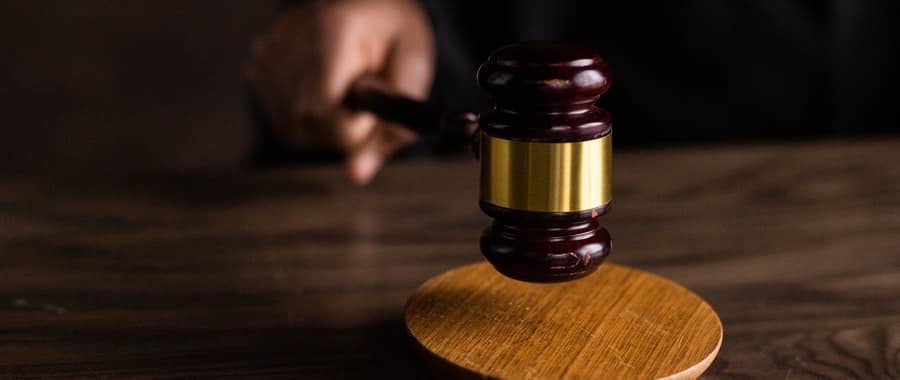Can Prior Convictions Be Used in Court in Denver?

As you prepare your defense for a criminal trial in Denver, you must address a critical issue. Can prior convictions be used in court? The short answer is yes, but you can minimize the chances of that happening. If you don’t testify, you won’t have to answer questions about prior convictions. Of course, you have a right to defend yourself, but in certain situations, you should consider your right to remain silent.
You and your criminal defense attorney will consider your decision to testify as you develop your defense strategy. Your attorney might suggest that you focus on physical evidence, lack of probable cause, strong defense witnesses, and other less volatile evidence. Even if you feel that you’ll be the strongest witness on your behalf, evidence about a prior felony conviction could diminish the benefit of anything else you say.
When Can Prior Convictions be Used in Court?
During a trial, prosecutors and attorneys follow formal rules that determine what evidence is admissible and when. Both federal and Colorado state court rules allow evidence of prior criminal convictions during criminal or civil trials. The rules uphold the use of prior felony convictions as evidence, but only when used to dispute your credibility as a witness.
- Colorado Rules of Evidence: Rule 608 (b) discusses felony convictions as one of the “specific instances of conduct” that may be used to attack or support a witness’s character for truthfulness or untruthfulness.
- Colorado Revised Statutes: C.R.S. 13-90-101 establishes that “all persons may testify.” It further explains that the court may question a witness’s credibility using evidence of a felony conviction within five years of the current testimony. Courts accept felony conviction evidence when disputing a witness who is either testifying on his own behalf or for someone else.
- Federal Rules of Evidence: Rule 609 contains similar evidence provisions applicable to federal court cases. The rule allows attorneys to submit evidence of felony convictions dating back to 10 years. The federal version of Rule 608 (b) addresses the same issues as Colorado’s rule.
How Can Prior Convictions be Used in Court?
An American Bar Association article discussing Federal Rule 608(b) discusses how it allows “…targeted and damaging questions about a witness’s past bad actions…” When evidence confirms your prior dishonesty, it usually harms your credibility. That’s generally the accepted reason for allowing it. There are also several situations where an attorney or prosecutor cannot seek or introduce this type of testimony.
Together, Colorado court decisions and state and Federal Rules of Evidence define who can testify, what type of evidence an attorney or prosecutor can submit, and when it’s relevant. Based on established guidelines, the evidence must be more probative than prejudicial. Essentially, the introduction of a felony conviction should have more value as evidence than it has the potential for prejudicing a jury against you. If the evidence doesn’t meet the probative vs prejudicial test, a judge can prevent the testimony.
These additional issues describe exceptions to felony conviction admissibility:
- Self Incrimination: Rules and court cases can’t force you to waive your right to avoid incriminating yourself.
- Misdemeanors: In most instances, a misdemeanor conviction is inadmissible for attacking witness credibility. If the current case involves dishonest acts (fraud, perjury, scams, etc.), a jury can hear the testimony based on its relevance. The judge must inform the jury to consider the dishonesty in making their decision, but not the misdemeanor conviction.
- Expungements: An attorney can’t introduce evidence of a crime that has been expunged.
- Not Convicted: If a person was arrested but not convicted, evidence of the crime is inadmissible.
- Plea Deals: If the court resolves a case with a plea deal, an attorney can’t present evidence of the crime.
A prosecutor or attorney can’t force you to testify about prior crimes that meet any of the above criteria. There is one exception. If you describe any of these types of crimes when your attorney calls you as a witness, the opposing attorney can continue with related questions.
Evidence of a Prior Crime Often Jeopardizes Your Case
When an attorney or prosecutor seeks to use your testimony of past crimes, they want to change the way a jury sees you. If your evidence confirms your prior dishonesty, it usually does exactly what the attorney or prosecutor intended. It harms your credibility as a witness.
Prior crime testimony generates the most damage when your current trial involves actions similar to past dishonest acts. This seems unfair, but court rules allow it as long as your credibility is the intended target. Attorneys sometimes portray your past convictions and current accusations as a pattern of behavior. Whether or not the current accusations are valid, this often gives a jury enough reason to doubt anything you say.
Can You Prevent a Denver Court From Allowing Prior Convictions Into Evidence?
If you don’t want a jury to hear about your prior criminal record, you probably shouldn’t testify. Your defense attorney can fight to prevent your criminal history from becoming evidence in your case. There’s little an attorney can do when evidence complies with court rules. You can’t prevent another witness from discussing your prior crimes, but you don’t have to be the one to testify against your own legal interests.
Contact a Criminal Defense Attorney
If a law enforcement officer arrests you for a crime in Denver, contact a defense attorney immediately. Attorneys talk to you about your case and work with you to plan the strongest defense possible. If you feel confident about testifying on your own behalf, your attorney can help you decide if that’s the best strategy for defending your case.
Contact us right away for a free consultation.

